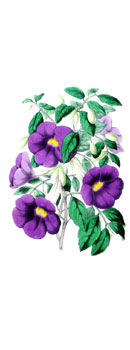THE SECOND COMING
THE SECOND COMING
Turning and turning in the widening gyre
The falcon cannot hear the falconer;
Things fall apart; the centre cannot hold;
Mere anarchy is loosed upon the world,
The blood-dimmed tide is loosed, and everywhere
The ceremony of innocence is drowned;
The best lack all conviction, while the worst
Are full of passionate intensity.
Surely some revelation is at hand;
Surely the Second Coming is at hand.
The Second Coming! Hardly are those words out
When a vast image out of Spiritus Mundi
Troubles my sight: a waste of desert sand;
A shape with lion body and the head of a man,
A gaze blank and pitiless as the sun,
Is moving its slow thighs, while all about it
Wind shadows of the indignant desert birds.
The darkness drops again but now I know
That twenty centuries of stony sleep
Were vexed to nightmare by a rocking cradle,
And what rough beast, its hour come round at last,
Slouches towards Bethlehem to be born?
This printing of the poem has a page break between lines
17 and 18 making the stanza division unclear. Following
the two most similar drafts given in the Parkinson and
Brannen edited edition of the manuscripts, I have put a
stanza break there. (Interestingly, both of those drafts
have thirty centuries instead of twenty.) The earlier drafts
also have references to the French and Irish Revolutions
as well as to Germany and Russia.
Several of the lines in the version above differ from those
found in subsequent versions. In listing it as one of the
hundred most anthologized poems in the English
language, the text given by Harmon (1998) has changes
including: line 13 (": somewhere in sands of the desert"),
line 17 ("Reel" instead of "Wind"), and no break
between the second and third stanza.

 خارها
خارها